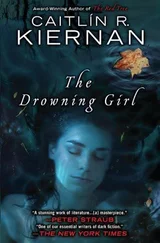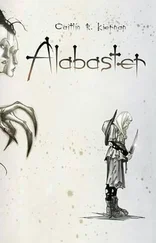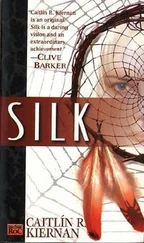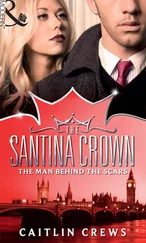Caitlin R. Kiernan - The Red Tree
Здесь есть возможность читать онлайн «Caitlin R. Kiernan - The Red Tree» весь текст электронной книги совершенно бесплатно (целиком полную версию без сокращений). В некоторых случаях можно слушать аудио, скачать через торрент в формате fb2 и присутствует краткое содержание. Жанр: Ужасы и Мистика, на английском языке. Описание произведения, (предисловие) а так же отзывы посетителей доступны на портале библиотеки ЛибКат.
- Название:The Red Tree
- Автор:
- Жанр:
- Год:неизвестен
- ISBN:нет данных
- Рейтинг книги:3 / 5. Голосов: 1
-
Избранное:Добавить в избранное
- Отзывы:
-
Ваша оценка:
- 60
- 1
- 2
- 3
- 4
- 5
The Red Tree: краткое содержание, описание и аннотация
Предлагаем к чтению аннотацию, описание, краткое содержание или предисловие (зависит от того, что написал сам автор книги «The Red Tree»). Если вы не нашли необходимую информацию о книге — напишите в комментариях, мы постараемся отыскать её.
The Red Tree — читать онлайн бесплатно полную книгу (весь текст) целиком
Ниже представлен текст книги, разбитый по страницам. Система сохранения места последней прочитанной страницы, позволяет с удобством читать онлайн бесплатно книгу «The Red Tree», без необходимости каждый раз заново искать на чём Вы остановились. Поставьте закладку, и сможете в любой момент перейти на страницу, на которой закончили чтение.
Интервал:
Закладка:
“Sarah, are you pissed at me? Have I done something wrong?”
“Not that I’m aware of,” I answered. “Is there something I might have missed?” I opened my eyes, then, and I smiled at her. I wanted to shut the fuck up and not say another single word, and I wanted to take back what had been said already. I was sitting there — detached, dissociative— watching Constance, listening to the madwoman who’d hijacked my voice. In that fleeting instant, it seemed so perfectly crystal clear that I’d entirely lost my mind. But then the comforting certainty dissolved, and I could not dismiss the possibility that the madwoman — despite, or because of, her madness — might be wholly justified in her apprehensions.
“Not that I’m aware of,” Consytance replied. Her voice had become wary, and she glanced over her shoulder, back towards the hallway and the kitchen. And the cellar door, of course, which lies in between the two. When she turned to face me again, the corners of her mouth were bent downwards in the subtlest of frowns.
“You must miss Amanda terribly,” she said. There was not even a hint of anything mocking or facetious in her voice. There was no sarcasm. But, still, there was that wariness.
“Didn’t I already tell you that Amanda is none of your concern?” I asked her. Or what I asked was very similar. Typing this, I am once more forced to admit that much of these recollections are approximations. Necessary fiction. My memory does not hold word-for-word, blow-by-blow transcripts. Very few minds are capable of such a feat, and mine doesn’t number among them. To again quote Poe (from The Narrative of Arthur Gordon Pym of Nantucket ):
One consideration which deterred me was, that, having kept no journal during a greater portion of the time in which I was absent, I feared I should not be able to write, from mere memory, a statement so minute and connected as to have the appearance of that truth it would really possess, barring only the natural and unavoidable exaggeration to which all of us are prone when detailing events which have had powerful influence in exciting the imaginative faculties.
I’ve had more than one heated “discussion” with readers and other writers regarding the use of unreliable narrators. I’ve seen people get absolutely apoplectic on the subject, at the suggestion that a book (or its author) is not to be faulted for employing an unreliable narrator. The truth, of course, is that all first-person narrations are, by definition, unreliable, as all memories are unreliable. We could quibble over varying degrees of reliability, but, in the end, unless the person telling the tale has been blessed with total recall (which, as some psychologists have proposed, may be a myth, anyway), readers must accept this inherent fallibility and move the fuck on. Have I already mentioned the crack someone at the New York Times Book Review made about my apparent fondness for digression? Consider the preceding a case in point.
Whatever specific words I might have used, I made it plain to Constance I did not wish to discuss Amanda.
“She was a painter, too,” Constance said, as though she hadn’t heard me. And it wasn’t a question, but presented as a statement of fact.
“Not exactly,” I said, wishing like hell that I had a cigarette, but I was out, and I wasn’t about to bum one off Constance.
“How do you mean?” she asked, and took another step into the room. The paranoid woman sitting at the foot of my bed noted both the physical incursion being made and Constance’s refusal to drop the obviously prickly matter of Amanda. “She didn’t paint?”
“Not with brushes,” I said. “Not with tubes of paint. At least, not usually. She used computers.”
“Graphic design?”
“She called it photo-montage,” I told Constance, who nodded and glanced at the typewriter on the dressing table. “She created composite images from photographs.”
“Oh,” Constance said. “Photoshopping,” and whether or not she’d meant to attach any sort of derisory connotation, that’s how the paranoid woman at the foot of the bed received the comment. And it triggered in me something that had not been triggered for quite some time, and I found myself needing to defend Amanda.“It was amazing, what she did,” I said, sitting up straighter, keeping my eyes on Constance. “She made photographs of things that couldn’t be photographed.”“Right,” Constance nodded, looking at me again. There was no trace of malice in her distant sangría eyes. “I had a course on photo manipulation in college. But I’m not a photographer, I’m a painter.”
“I think Amanda might have told you she was both.”
“Do you have any of her work here?” Constance asked, and I shook my head. I don’t. Everything of Amanda’s that I still own (including her artwork) is back in Atlanta, in the storage unit there. I almost brought a scrapbook with me, printouts of fifty or sixty of her favorite pieces. She referred to them as “giclées”—what she sold to her clients and from her website.
“There’s still some stuff online, I think,” I said. “Unless her agent or someone else has had it taken down.”
“That seems unlikely,” Constance said very softly.
“Does it?”
She didn’t reply, but sat, uninvited, on the floor a few feet away from me. She offered me a cigarette, and, having one offered, that’s not the same as bumming. She also offered me a light, but I had a book of matches in the pocket of my robe. I smoked and stared at the rain streaking the south-facing window.
“I’m scared,” I said, and the paranoid woman curled up inside my skin cringed, and cursed, and called me a traitor.
“We’re both scared,” Constance said. “I’m not ashamed to admit that. I only work the way that I’ve been working when I’m hiding from something, Sarah.”
“So, you’ve been hiding from something since you arrived,” I said, and laughed. Thinking back, I wish that I hadn’t, but it slipped out, like the smoke slipping across my lips and out of my nostrils. And it pleased the paranoid woman. Maybe she’s the one who laughed, and it wasn’t me, at all.
“Haven’t we both been hiding?” Constance countered. “You think the only baggage I brought back from LA was the crap you helped me carry in? Fucking shitstorm out there,” she said. “I’ve been trying to forget about it, just live my life and forget things best forgotten.”
“I never said that Amanda was something best forgotten,” the paranoid woman muttered, all but whispering, and kept her eyes on the window. Constance sighed loudly, and apologized. It made me want to hit her; I’d not asked for an apology, and I didn’t expect one.
“That’s really not what I meant,” she said. “It just came out wrong. I know there’s not a one-to-one correspondence going on here, Sarah. We both got bad shit in our immediate pasts, that’s all I mean. And then we come here, and what do we get? Chuck Harvey’s pet fucking obsession. That goddamn tree. . ” And I’ll say she trailed off here, because I got the distinct impression that there was something else she wanted to say, but didn’t.
And now the paranoid woman was yammering from someplace inside my head, intimations of seduction and guile, insincerity and head games. I silently told her to shut the hell up and leave me alone, but, I admit, I also hung on every word she said. Constance wanted something. Probably, Constance had wanted something all along, and I was getting tired of waiting to find out what it might be.
“I know that I shouldn’t be shutting myself away up there,” she said and pointed a finger towards the bedroom ceiling and the attic. “But it wasn’t so bad. . I mean, maybe I didn’t quite realize what I was doing, until you shut yourself up in here.”
Читать дальшеИнтервал:
Закладка:
Похожие книги на «The Red Tree»
Представляем Вашему вниманию похожие книги на «The Red Tree» списком для выбора. Мы отобрали схожую по названию и смыслу литературу в надежде предоставить читателям больше вариантов отыскать новые, интересные, ещё непрочитанные произведения.
Обсуждение, отзывы о книге «The Red Tree» и просто собственные мнения читателей. Оставьте ваши комментарии, напишите, что Вы думаете о произведении, его смысле или главных героях. Укажите что конкретно понравилось, а что нет, и почему Вы так считаете.












